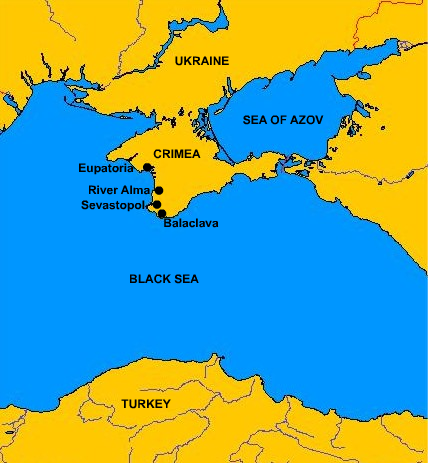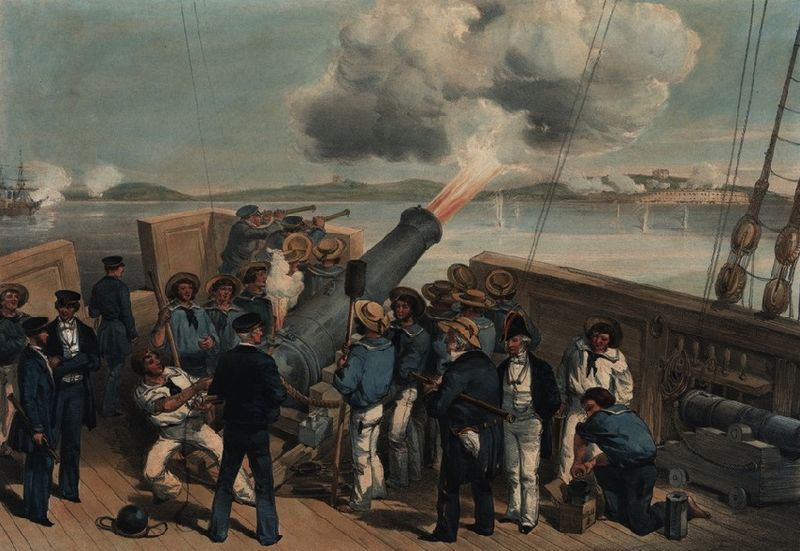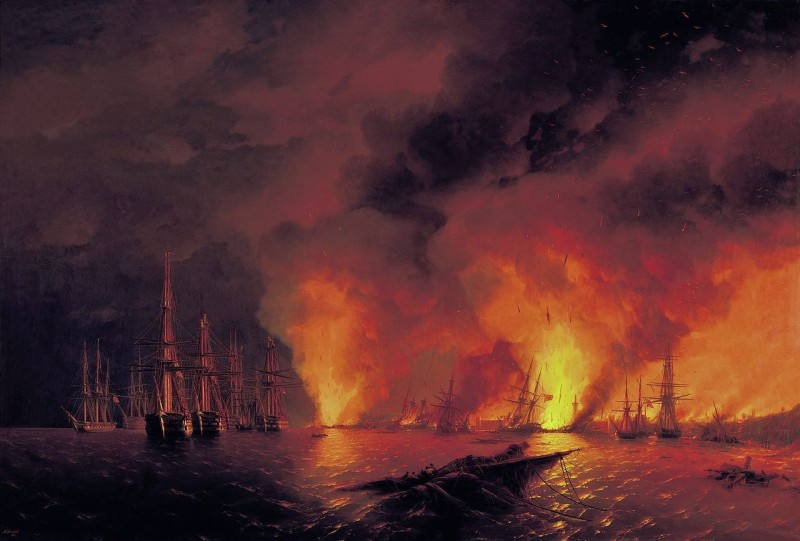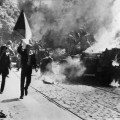The Crimean War – a 19th Century War That Sounds Terribly Familiar
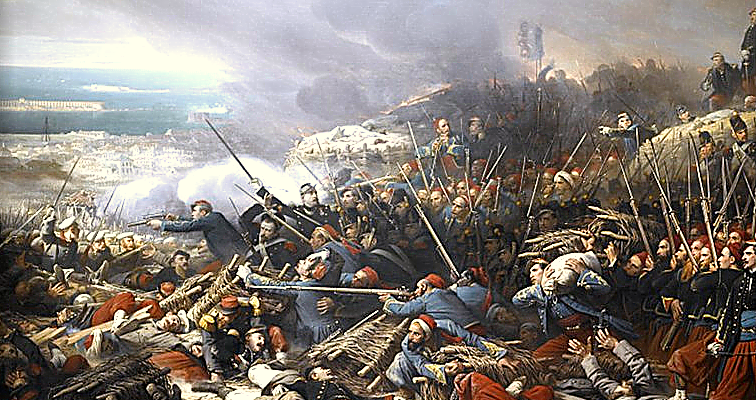
“Time is a flat circle. Everything we’ve ever done, or will do, we’ll do over again.” – True Detectives, HBO
That’s what I keep thinking as I write this article on the Crimean War. Maybe I’ve been watching too much television, but with the modern-day Russian invasion of Crimea in Ukraine – and the Western powers alliance against it – the quote seems eerily appropo. The Crimean War is a time capsule of modern warfare precursors and foreshadowing. So, read below, and impress your friends about what you know about the Crimean War.
They will undoubtedly think you are a douche.
“Half a league, half a league,
Half a league onward,
All in the valley of Death,
Rode the six hundred (…)
Cannon to right of them,
Cannon to left of them, Cannon behind them,
Volley’d and thunder’d;
Storm’d at with shot and shell,
While horse and hero fell,
They that had fought so well
Came thro’ the jaws of Death,
Back from the mouth of Hell,
All that was left of them,
Left of six hundred.”
The lines above are from the 1854 poem “The Charge of the Light Brigade” by Lord Alfred Tennyson. It describes a disastrous British Cavalry charge from the Crimean War, in which the cavalry was sent in the “wrong” direction – right into the line of fire – by incompetent commanders.
But the poem got it wrong.
Only 110 out of 666 men were killed, and the Light Brigade realized it was a trap, achieved some objectives, and was able to finagle their way back to their ranks. Tennyson got bad information from a London reporter regarding the story, and refused to change it even after learning about it.
The takeaway here…there were war correspondents.
The Crimean War is fascinating and modern
This relatively unknown 19th century war had a lot of major, future-shaping occurrences in it.
The War (1853-1856), was between Russia and an alliance of Western European powers, and changed in large ways the present-day states of Ukraine, Moldova, Bulgaria, Romania, Greece, Turkey, Azerbaijan, Armenia, Georgia, and regions such as Crimea.
Sound familiar? Here we go again.
The Combatants
Russia vs. England/France/The Ottoman Empire/The Kingdom of Sardinia/Austrian Empire [Technically Neutral, but not really]
The Kingdom of Sardinia was basically the precursor to Italy, and the Ottoman Empire was basically the precursor of modern-day Turkey, Eastern Europe, the Middle East and North Africa.
So yes, Russia vs. The World. America didn’t get involved, but that’s ok, because it would have it’s own issues to deal with only a few years later i.e. The Civil War.
What the heck happened?
The Crimean war was fought on religious grounds. The main issue involved the rights of Christians in the Holy Land, which was controlled by the Ottoman Empire. The French promoted the rights of Catholics, while Russia promoted those of the Orthodox. Napoleon III of France (not the Napoleon you’re thinking) championed the Catholic side, and Tsar Nicolas of Russia favored the Orthodox cause.
The underlying issue was less tangible. The Ottoman empire comprised mostly of Eastern Europe was crumbling, and Britain and France refused to someday just allow it to slowly morph into more Russian “satellite” territory.
Ringing any bells?
Most of the fighting took place for control of the Black Sea, with land battles on the Crimean peninsula in southern Russia.
The result of the Crimean War
Russia lost. The main result was that the Black Sea was neutralized—Russia would not have any warships there. This lasted about a decade. Territory Russia had gained was ceded back to the Ottomans, and vice versa for the Allies.
Major notables of the war, and the takeaway of this whole article.
It was the first use of ironclad vessels in a naval battle. See: US Civil War for more on that.
Naval torpedo mines were developed in the Crimean War by Immanuel Nobel, father of Alfred
Nobel – inventor of dynamite – and who’s fortune posthumously created the Nobel prizes.
Leo Tolstoy becomes the first war correspondent. War correspondents kept nations around the world more informed than any prior conflict in history. The war was one of the first to be documented extensively in written reports and photographs.
An underwater cable installed to the Black Sea allowed information to get to London in just 2 hours. Politics would forever be changed, as public opinions could sway based on day-to-day activities. Bogus news like that of the “Charge of the Light Brigade” did not help.
In 1867 under a huge war debt burden, Russia sells Alaska to a third party, the United States. 13 years later, America strikes gold there.
Florence Nightingale, the mother of modern nursing treated Allied soldiers in the Crimean War.
N. I. Pirogov, known as the father of Russian field surgery, developed the use of anaesthetics, plaster casts, enhanced amputation methods, and five-stage triage in Crimea.
Over 130 years later, 80’s metal band Iron Maiden pens “The Trooper,” a song about the Light Brigade. (I just had to mention this.)
Source: Wikipedia
The Crimean War II: Now with nukes.
Which brings me back to today.
Russia’s prime minister, Vladimir Putin, wants Crimea again, and for some of the same reasons – unrestricted access to ports in the Black Sea. The Russian army has amassed itself inside Crimea, and the Western world stands united against the occupation. The battle lines this time are not drawn along religious lines (which is a nice change), but the same animosities both cultural and historical are in play.
“For the Russians to give [Crimea] to the Ukraine would be like giving Pearl Harbor to the Japanese today. It hits every wrong note in the psyche of the Russians. They remember the past in ways that we in the West simply do not comprehend. For them it’s like yesterday.” Andrew Lambert, professor of naval history at King’s College London
The first “modern war” just got more modern.
“Alright, alright, alright.”
Photos are courtesy of Wikimedia Commons.






